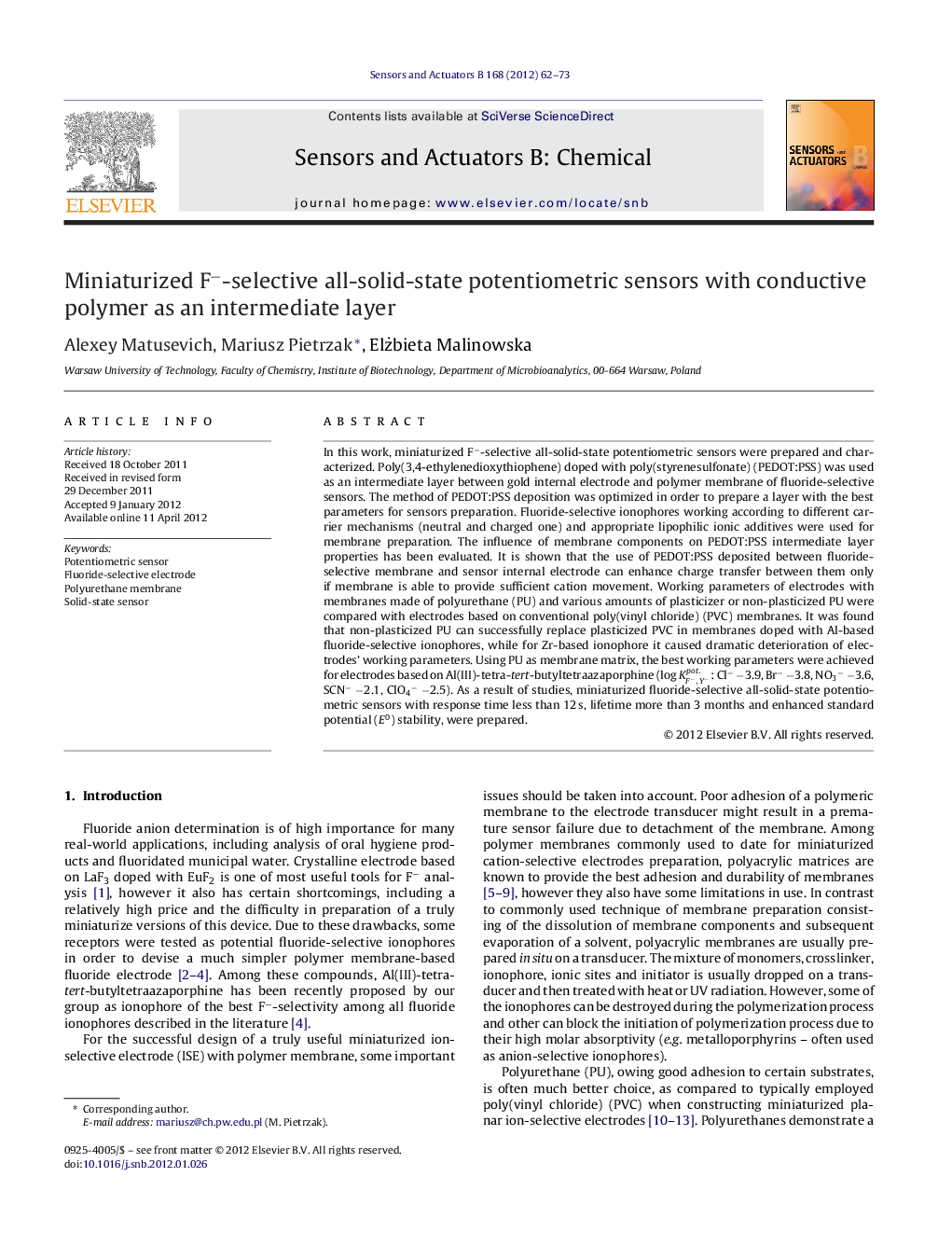| Article ID | Journal | Published Year | Pages | File Type |
|---|---|---|---|---|
| 742451 | Sensors and Actuators B: Chemical | 2012 | 12 Pages |
In this work, miniaturized F−-selective all-solid-state potentiometric sensors were prepared and characterized. Poly(3,4-ethylenedioxythiophene) doped with poly(styrenesulfonate) (PEDOT:PSS) was used as an intermediate layer between gold internal electrode and polymer membrane of fluoride-selective sensors. The method of PEDOT:PSS deposition was optimized in order to prepare a layer with the best parameters for sensors preparation. Fluoride-selective ionophores working according to different carrier mechanisms (neutral and charged one) and appropriate lipophilic ionic additives were used for membrane preparation. The influence of membrane components on PEDOT:PSS intermediate layer properties has been evaluated. It is shown that the use of PEDOT:PSS deposited between fluoride-selective membrane and sensor internal electrode can enhance charge transfer between them only if membrane is able to provide sufficient cation movement. Working parameters of electrodes with membranes made of polyurethane (PU) and various amounts of plasticizer or non-plasticized PU were compared with electrodes based on conventional poly(vinyl chloride) (PVC) membranes. It was found that non-plasticized PU can successfully replace plasticized PVC in membranes doped with Al-based fluoride-selective ionophores, while for Zr-based ionophore it caused dramatic deterioration of electrodes’ working parameters. Using PU as membrane matrix, the best working parameters were achieved for electrodes based on Al(III)-tetra-tert -butyltetraazaporphine (log KF−,Y−pot.: Cl− −3.9, Br− −3.8, NO3− −3.6, SCN− −2.1, ClO4− −2.5). As a result of studies, miniaturized fluoride-selective all-solid-state potentiometric sensors with response time less than 12 s, lifetime more than 3 months and enhanced standard potential (E0) stability, were prepared.
